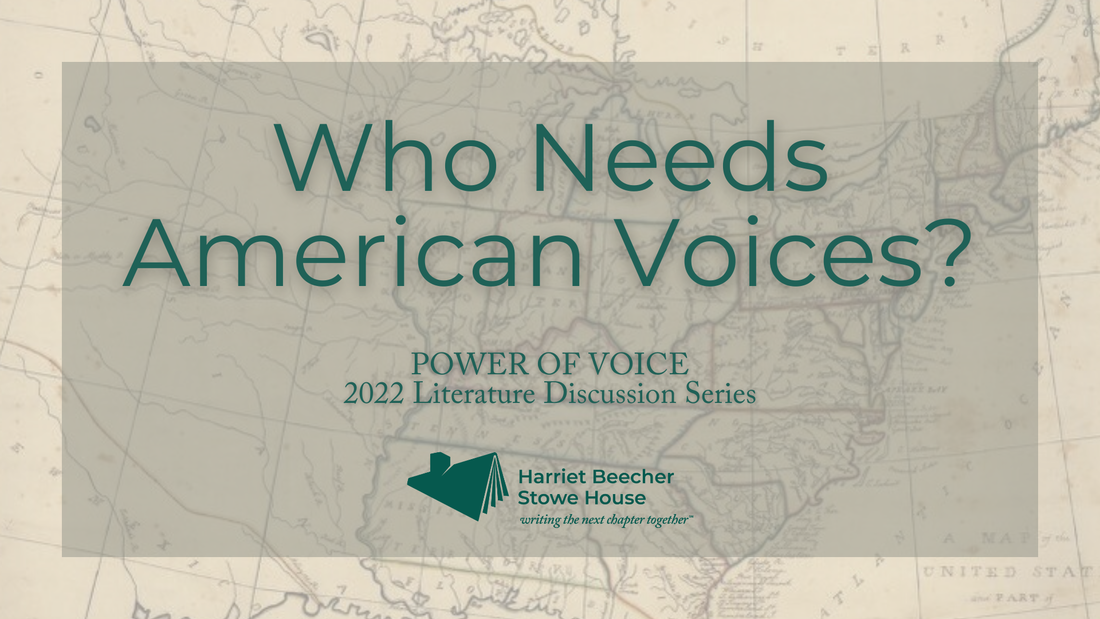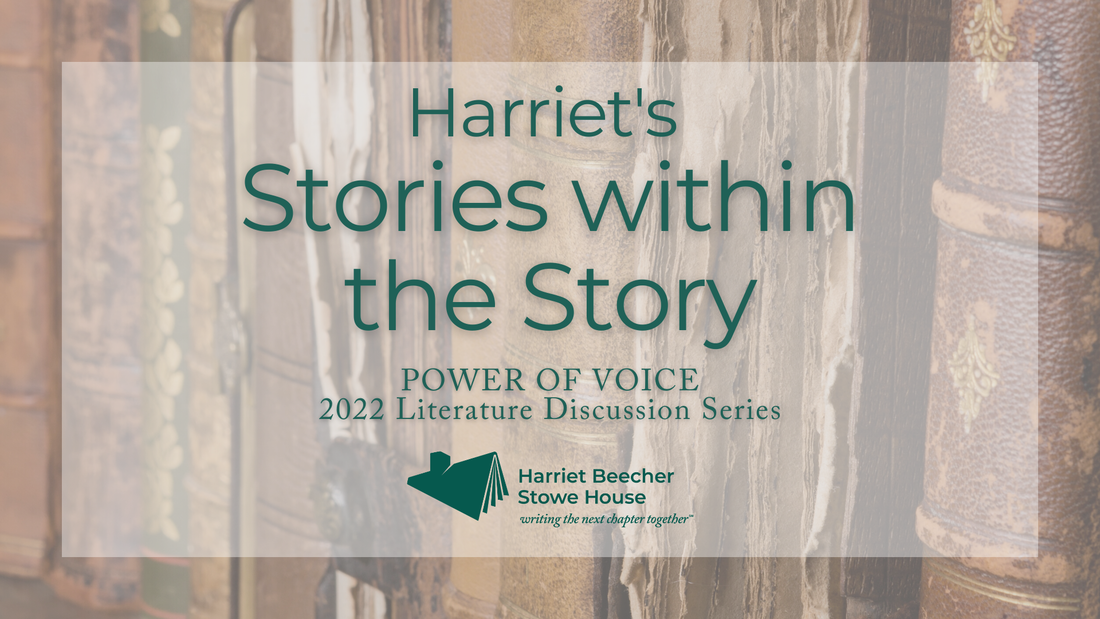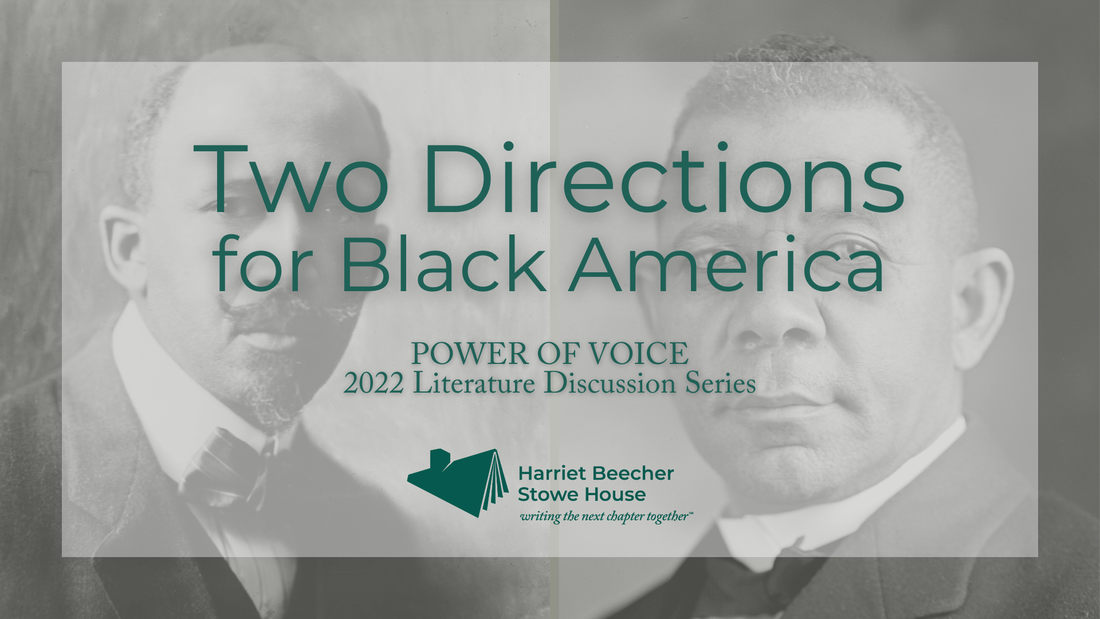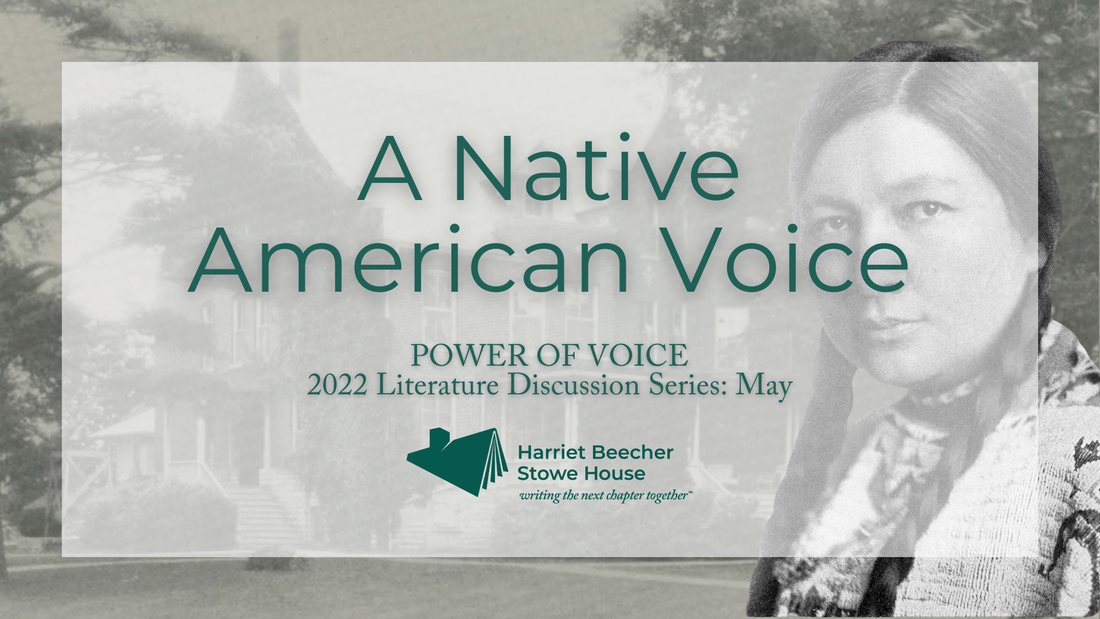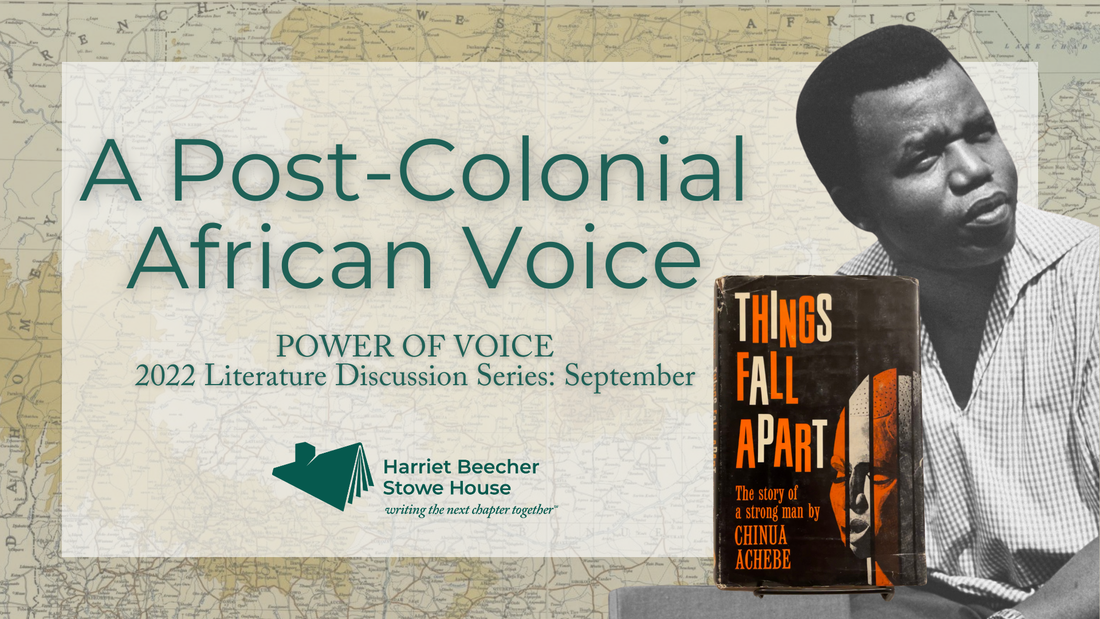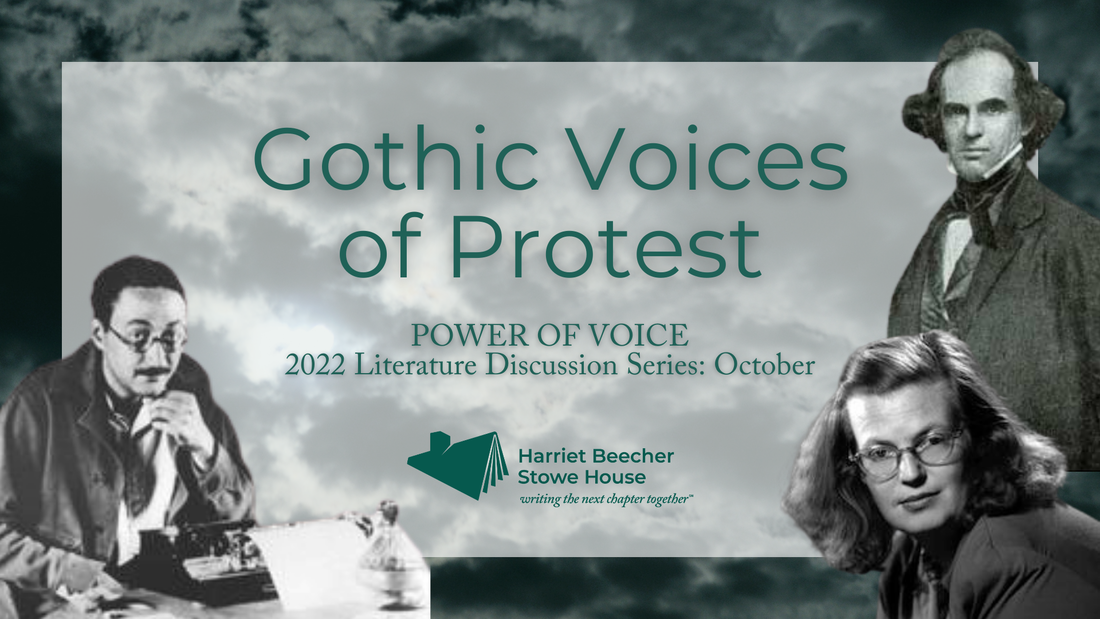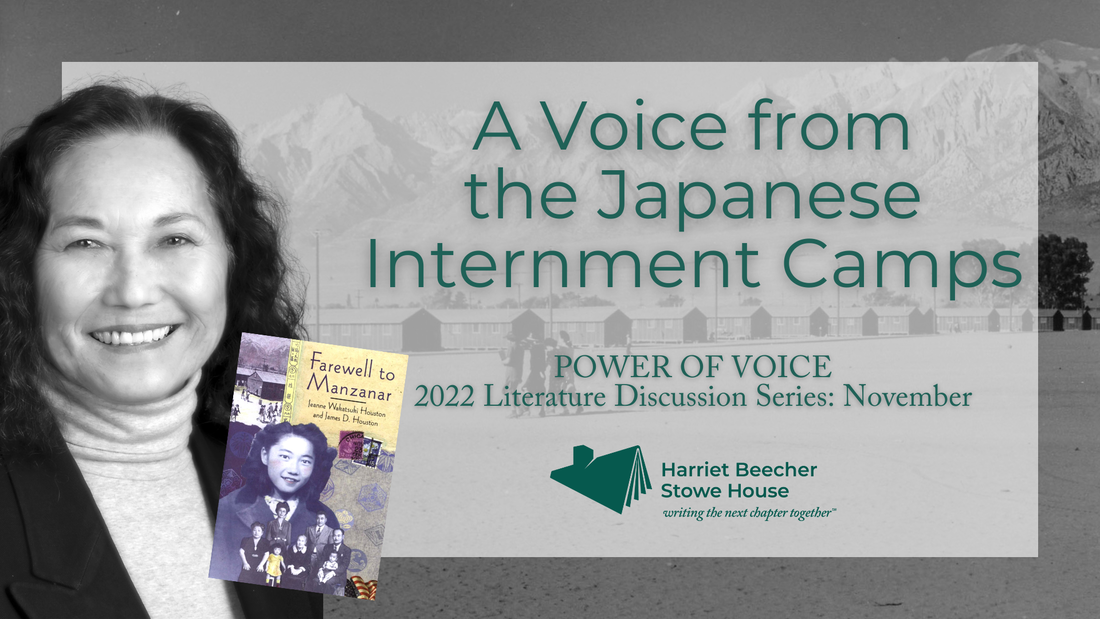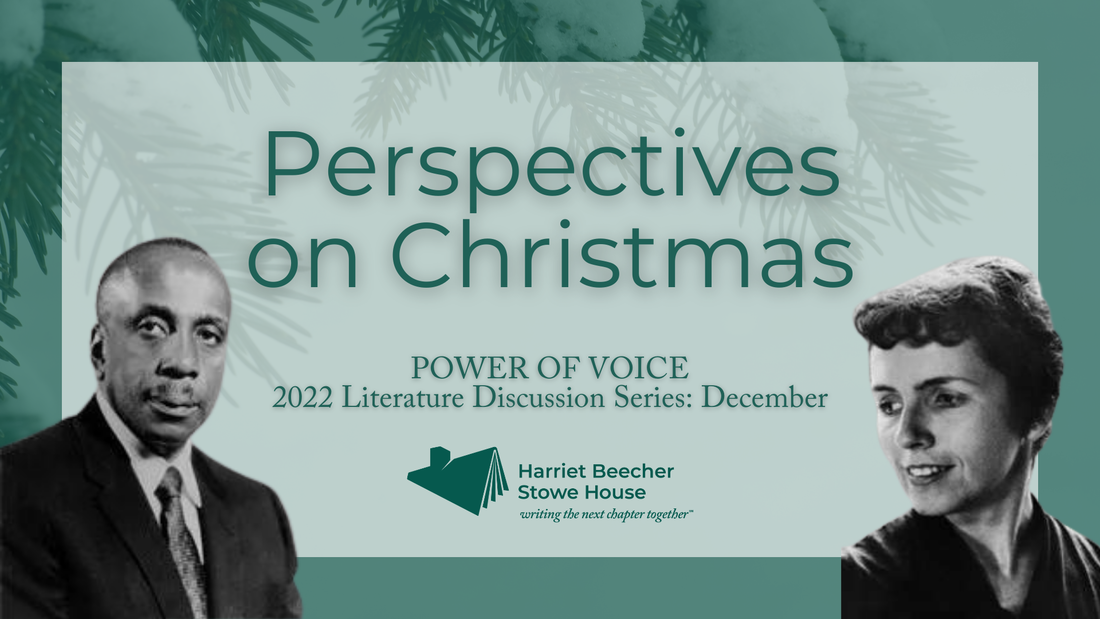The Power of Voice
2022 Literature Discussion Series
First Wednesdays at 7pm online
2022 Theme
In 2022 our monthly discussion series from Harriet Beecher Stowe House will continue with a new theme: “The Power of Voice.” We’ll focus on moments in American--and, in one case, world—history when eloquent voices arose, often from the margins, to address important issues, usually related to social justice, in culture and society.
Harriet Beecher Stowe exemplifies the power of voice. During her eighteen years in Cincinnati (1832 -1850), she discovered her voice as a writer, and in 1851, she decided to devote it to the anti-slavery cause. Horrified by the Fugitive Slave Act of 1850, she wrote to editor Gamaliel Bailey: “Up to this year I have always felt that I had no particular call to meddle with this subject [slavery], and I dreaded to expose even my own mind to the full force of its existing power. But I feel now that the time has come when even a woman or a child who can speak a word for freedom and humanity is bound to speak.” The result, of course, was Uncle Tom’s Cabin, the bestselling blockbuster that awakened many Northerners to the horrors of slavery and helped create the change of heart that would allow the Union to stand firm when the South seceded over slavery.
We’ll study the writings of many authors from the 19th and 20th centuries to determine
Discussion Format
Discussions will take place on Zoom from 7:00 to 8:15 pm on the first Wednesday of each month February - May and September -December. The leader will again by Dr. John Getz, Professor Emeritus, Xavier University, either by himself or with a co-leader, depending on the topic.
Tickets & RSVP
RSVP for individual discussion sessions through the links below. A donation of $5.00 is suggested, or free for HBSH members. Not a member yet? Learn more here.
This series is sponsored by School Outfitters.
In 2022 our monthly discussion series from Harriet Beecher Stowe House will continue with a new theme: “The Power of Voice.” We’ll focus on moments in American--and, in one case, world—history when eloquent voices arose, often from the margins, to address important issues, usually related to social justice, in culture and society.
Harriet Beecher Stowe exemplifies the power of voice. During her eighteen years in Cincinnati (1832 -1850), she discovered her voice as a writer, and in 1851, she decided to devote it to the anti-slavery cause. Horrified by the Fugitive Slave Act of 1850, she wrote to editor Gamaliel Bailey: “Up to this year I have always felt that I had no particular call to meddle with this subject [slavery], and I dreaded to expose even my own mind to the full force of its existing power. But I feel now that the time has come when even a woman or a child who can speak a word for freedom and humanity is bound to speak.” The result, of course, was Uncle Tom’s Cabin, the bestselling blockbuster that awakened many Northerners to the horrors of slavery and helped create the change of heart that would allow the Union to stand firm when the South seceded over slavery.
We’ll study the writings of many authors from the 19th and 20th centuries to determine
- how they discovered their voices,
- the forms they chose for expressing their voices,
- the needs both personal and societal to which they put those expressions,
- the effects their work had,
- how we can develop and enlist our own voices in service of our own values.
Discussion Format
Discussions will take place on Zoom from 7:00 to 8:15 pm on the first Wednesday of each month February - May and September -December. The leader will again by Dr. John Getz, Professor Emeritus, Xavier University, either by himself or with a co-leader, depending on the topic.
Tickets & RSVP
RSVP for individual discussion sessions through the links below. A donation of $5.00 is suggested, or free for HBSH members. Not a member yet? Learn more here.
This series is sponsored by School Outfitters.
2022 Series Schedule
|
Wednesday, February 2, 2022: Who Needs American Voices?
In the early decades of the 19th century—well after our political independence from England,--it was often said that the new country had no literature or art of its own. In 1820, British writer Sidney Smith asked, “In the four-quarters of the globe, who reads an American book? Or goes to an American play? Or looks at an American picture or statue?” And many thought that we didn’t need our own literature when we had the whole British tradition to draw on. The strongest voice against this colonial complex and in favor of a national literature was Ralph Waldo Emerson, and he exerted a profound influence on our great national poet, Walt Whitman, but Harriet more quietly used her own voice to address the issue. Suggested reading: |
|
Wednesday, March 2, 2022: Harriet's Stories within the Story
Co-Leader: Dr. Renea Frey, Assistant Professor of English and Writing Program Director, Xavier University At key points in Uncle Tom’s Cabin, characters’ very lives depend on their ability to tell their own stories effectively. We’ll consider two of the book’s most successful tellers of stories within the larger story of Uncle Tom’s Cabin: George Harris and Cassy. How did they develop their voices? Why are their stories successful with their audiences in the book? Are they as successful with us? Are their narrative strategies similar to Harriet’s in the book as a whole? Suggested reading: |
|
Wednesday, April 6, 2022: Two Directions for Black America
Co-Leader: Dr. Janice Walker, Special Assistant to the President, former Vice-President for Institutional Diversity and Inclusion, and former Dean of the College of Arts and Sciences, Xavier University The North’s victory in the Civil War and the abolition of slavery proved to be only a step toward equal treatment for Blacks in the US. In the South, Blacks made gains during Reconstruction, but when it ended in 1877, white Southerners reacted with violence and Jim Crow laws that reduced Southern Blacks to near-servitude. Racism was deeply entrenched in the North too. How, then, should Blacks make their way in the US as the twentieth century dawned? We’ll examine the ways the two most important Black leaders of the time answered that question and consider the relevance their answers might have for us today. Suggested reading: |
|
Wednesday, May 4, 2022: A Native American Voice
Co-leader: Emma Baldwin, Citizen of the Miami Tribe of Oklahoma and teacher at Azalea Montessori School As young teacher in the late 1820s, Harriet Beecher took an active part in a lette writing campaign in support of the Cherokees, who had been ordered off their land by the State of Georgia, leading ultimately to the Trail of Tears in the next decade. After the Civil War, the US government continued to take Native American land and attack Native American autonomy and culture. We’ll discuss the powerful voice of Zitkala-Sa, a Yankton Sioux woman who grew up in this “boarding school era,” mastered English, and used it to advocate for Native American rights. Suggested reading: Selected chapters from Zitkala-Sa, American Indian Stories (1921)
|
|
Wednesday, September 7, 2022: A Post-Colonial African Voice
Co-leader: Dr. Jerry Cline-Bailey, Associate Professor of English, Xavier University Born in 1930 to a Christian family of the Igbo People in Nigeria, Chinua Achebe was educated in Nigerian schools modeled after those of the British, who had colonized his country. In college he began to see that even when British writers set their stories in Africa, they always did so from their Western colonial point of view. We’ll discuss how, in Things Fall Apart, Achebe developed a distinctive voice, in English, to tell the story of colonialism from an African point of view. We’ll also consider scholar Simon Gikandi’s claim that “Achebe is the man who invented African literature because he was able to show, in the structure and language of his first novel, that the future of African writing did not lie in simple imitation of European forms but in the fusion of such forms with oral traditions.” Suggested reading & viewing:
|
|
Wednesday, October 5, 2022: Gothic Voices of Protest
Discussion Leader: Dr. John Getz, Professor Emeritus, Department of English, Xavier University Get into the Halloween spirit by reading these three Gothic stories from different eras in US history. We'll discuss how the authors used the popular genre of terror and horror fiction to dig deep into American culture and make us think about some truly frightening realities: the underside of the American Revolution, race relations in the post-Civil War South, and the tyranny of unquestioned tradition and authority. Suggested reading: |
|
Wednesday, November 2, 2022: A Voice from the Japanese Internment Camps
Discussion Leaders: Dr. John Getz, Professor Emeritus, Department of English, Xavier University and Dr. Robin Ikegami, Associate Vice-President for Instructional Services, Sacramento City College The Japanese internment camps in the US during World War II are a part of American history that was largely overlooked until about three decades after the war. We’ll discuss a voice that emerged from one of the camps, Manzanar in California. That voice belongs to Jean Wakatsuki Houston, who was born in the US but at the age of seven in 1942 was uprooted with her family and sent to Manzanar. We’ll consider how she portrays the humanity of her family and others as they coped with the injustice of the camp. Like Uncle Tom’s Cabin, Farewell to Manzanar opened many eyes to a racist and unjust chapter in American history. We’ll also consider the possible relevance of the book to racial issues today. Suggested reading:
|
|
Wednesday, December 7, 2022: Perspectives on Christmas
RSVP HERE Discussion Leaders: Dr. John Getz, Professor Emeritus, Department of English, Xavier University and Dr. Norman Finkelstein, Professor Emeritus, Department of English, Xavier University Share the holiday spirit as we discuss three ways of looking at Christmas: a poem by a Black author-activist who mentored MLK and two Jewish perspectives Christians don’t hear or think much about at Christmas time. And no, Hanukkah is not “the Jewish Christmas.” Suggested reading: Suggested viewing: |
Past Series
2021: After Uncle Tom's Cabin: Black Voices for Justice Discussion Series
2020: Year of the Woman Discussion Series
2020: Year of the Woman Discussion Series
Series Sponsors |
|
|
At School Outfitters we work hard to bring your learning space visions to life, whether it’s new construction, renovations or simple classroom updates. We pride ourselves on enterprise-level project services like expert space planning and hassle-free installation. And with our ready-to-ship inventory, your project will get done on time and on budget. To learn more about our services, visit our website.
|
|
Web Hosting by iPage

